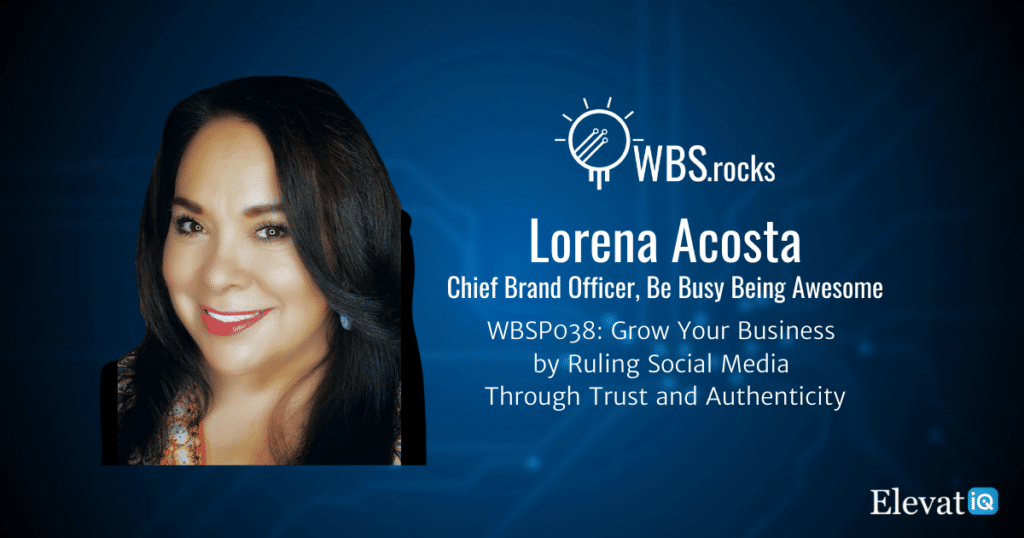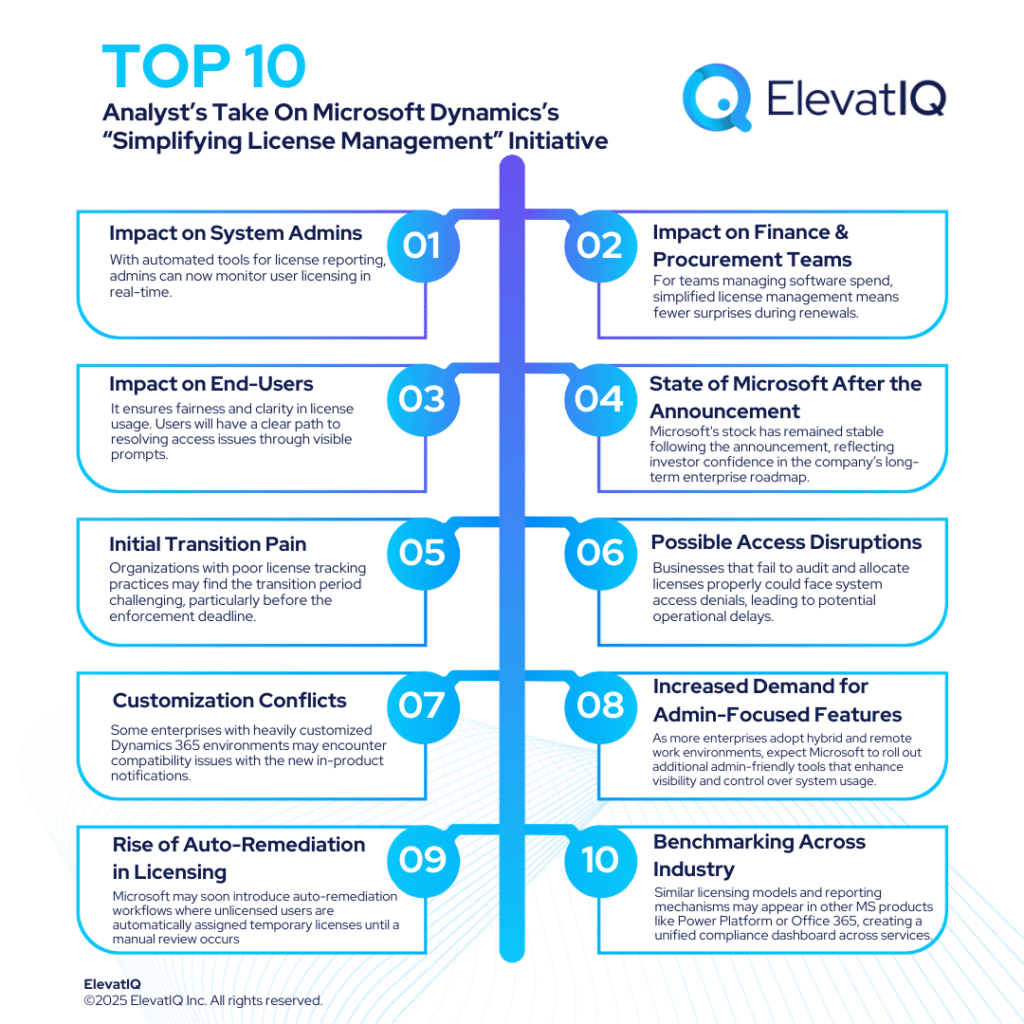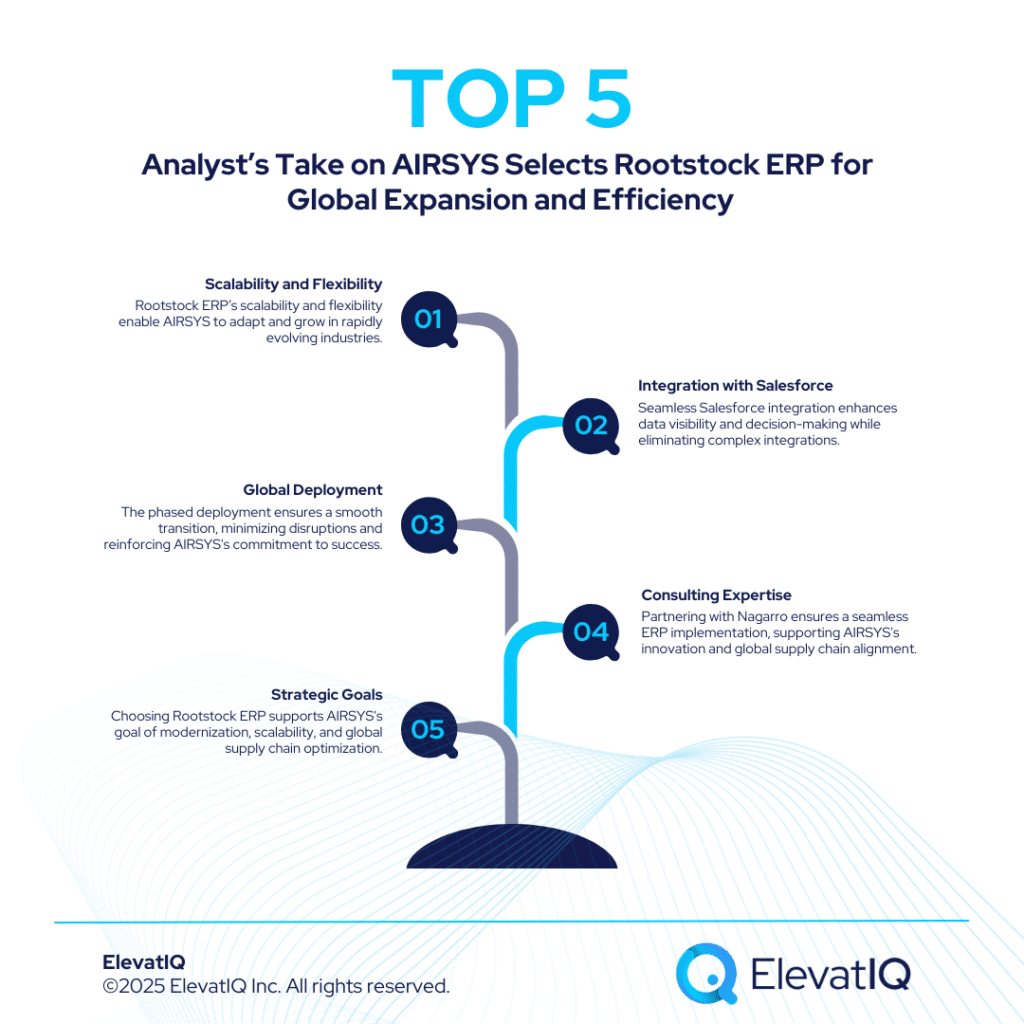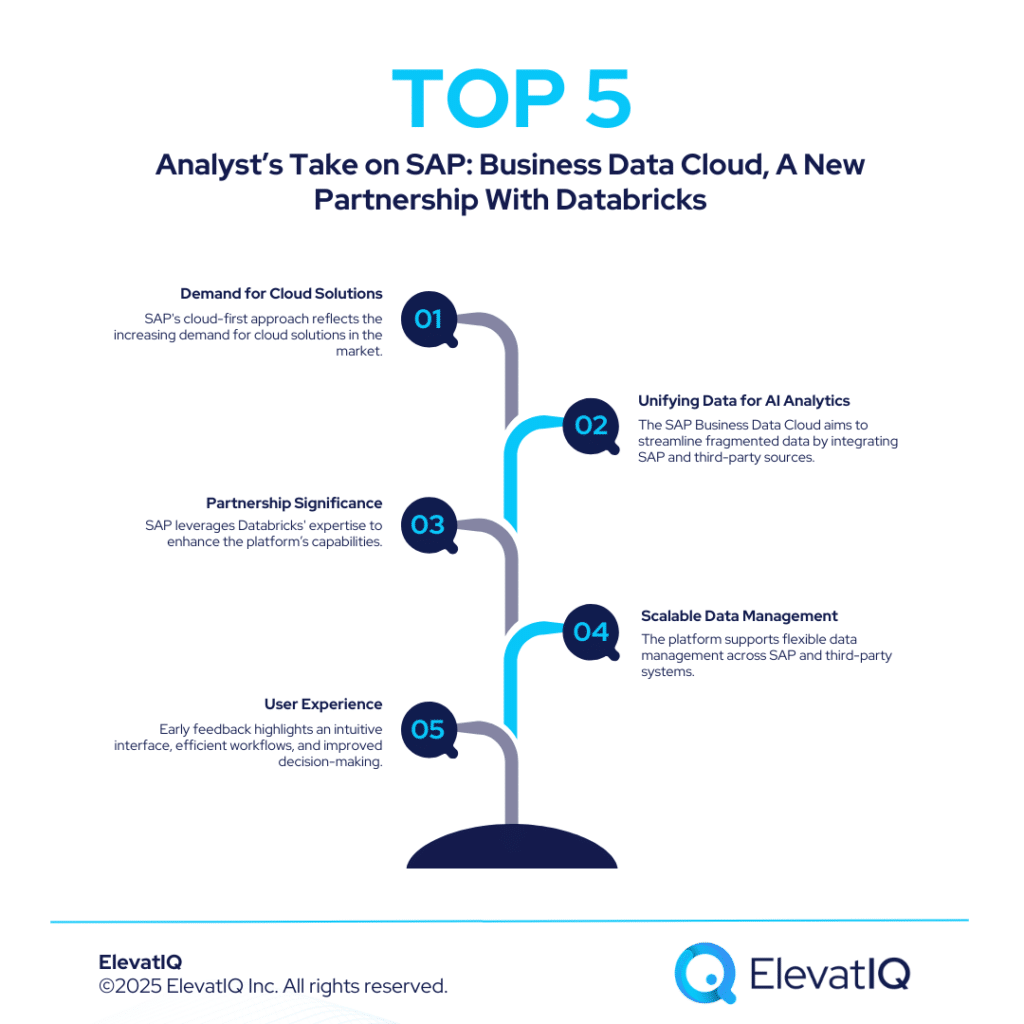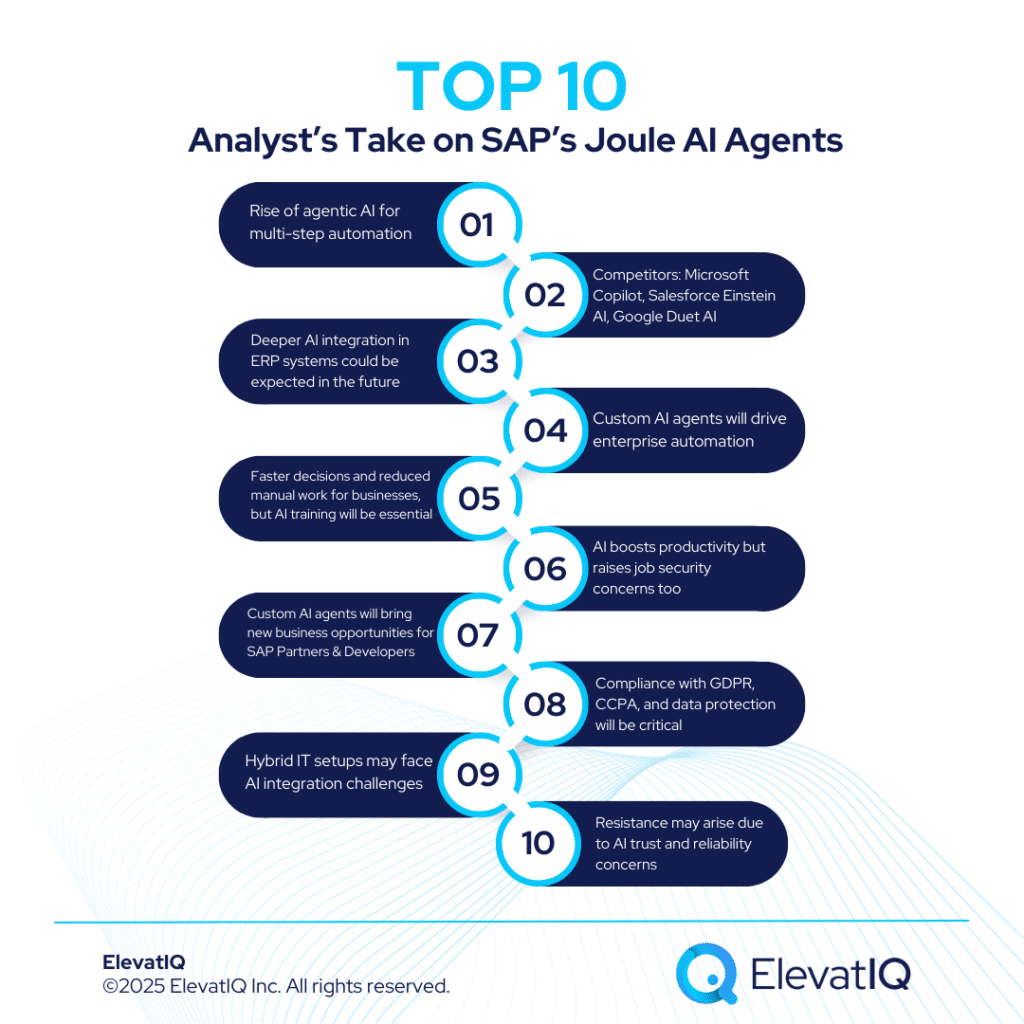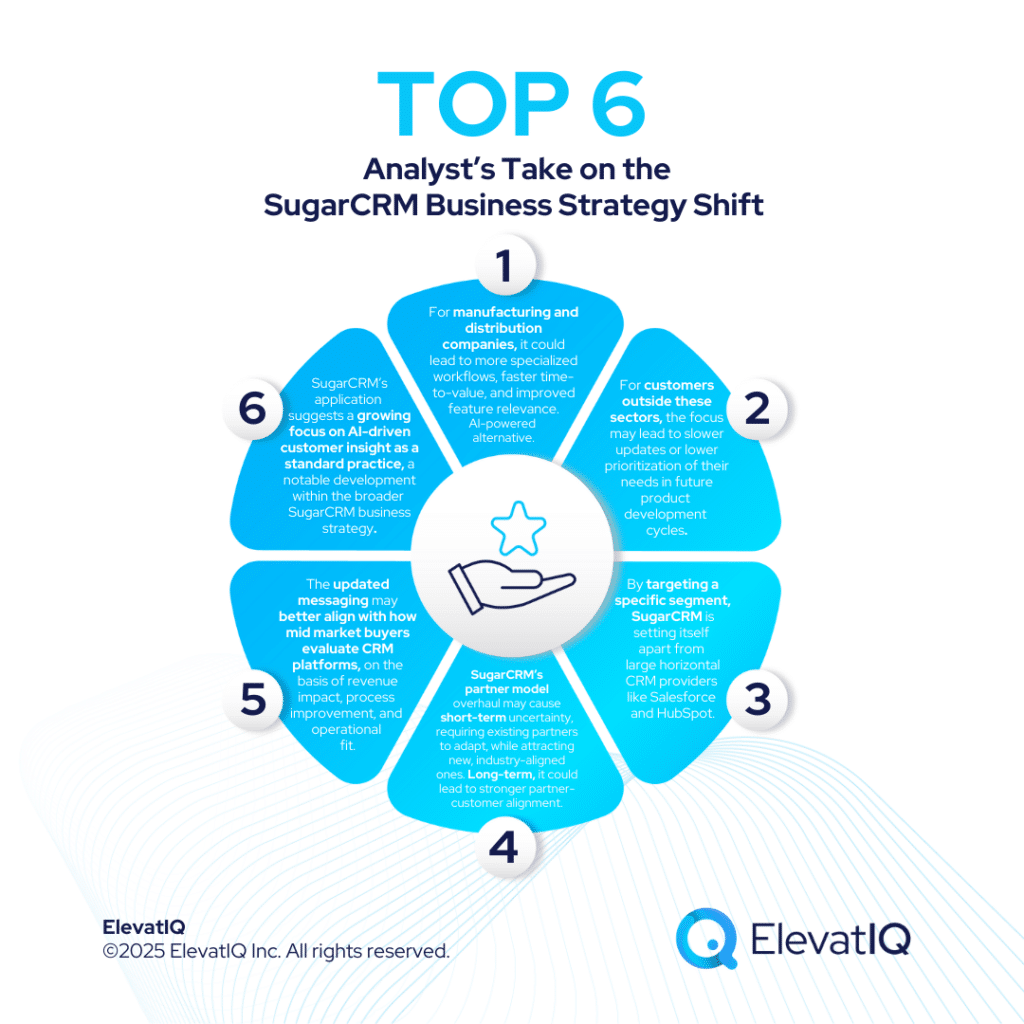Last Updated on November 27, 2023 by Sam Gupta
In this episode, we have our guest Lorena Acosta, who takes us through her journey of amassing millions of followers on LinkedIn. She also discusses the most critical factors that are important for anyone to be successful on social media and with thought leadership content. Finally, she discusses the mistakes executives make in focusing on subject-matter expertise and knowledge rather than trust and authenticity.
Chapter Markers
- [0:18] Intro
- [2:27] Personal journey and current focus
- [8:53] Perspective on growth
- [11:28] Lorena’s journey of gaining 1.3 million LinkedIn followers
- [19:33] Lorena’s thought leadership content strategy for LinkedIn
- [21:49] LinkedIn vs Facebook
- [22:41] How to create thought leadership content and personal brand?
- [27:27] LinkedIn recent trends
- [30:59] How to create trust with your social media strategy?
- [33:09] Closing thoughts
- [34:18] Outro
Key Takeaways
- People really have forgotten that we are human beings, and we are driven by emotions. And we need to be relatable. Yeah, people start getting memories when you start sharing stories.
- There’s a lot of opportunities every day to demonstrate your values and connect. You need to turn yourself into a brand that people admire. That’s thought leadership content strategy, their core values, reflect in their persona and in the persona and make them the brand that people love to follow and admire. Personal branding gives you an edge to stand out as a popular leader in your industry.
- Your personal brand is a journey, and you need to start creating content that is going to be compelling to your audience. Now, you need to remember that anybody who, with any title that they have CFO, director, President, whatever title even C-level executives, we are still human beings, and we need to be relatable with somebody.
- Thought leaders sell silently to their audience. Because their people follow them, like them, and trust them. So how do you develop trust by having alignment with your values and your beliefs? By being a thought leader and once they start liking you then showcase your product and your services.

Subscribe and Review
Apple | Spotify | Stitcher | Google Podcasts | Deezer | Player FM | Castbox
About Lorena
Lorena Acosta is a mother, a coach, a mentor, a proven-sales expert, and the creator of the Trust Factor System ©.
As a Thought Leader and Personal Brand Evangelist, Lorena helps individuals and companies to reassess their strategies and discover their true path of success by becoming the voice of their industry!
Lorena has leveraged her experience and leadership to build a tribe of over 1million LinkedIn followers that she engages with via daily posts and her #BeBusyBeingAwesome podcast.
Resources
- Connect with Lorena
Full Transcript
Lorena Acosta 0:00
I can’t create that interaction between me and my audience. And people really have forgotten that we are human beings and we’re driven by emotions. And we need to be relatable people who start caring with memories when you start sharing a story.
Intro 0:18
Growing a business requires a holistic approach that extends beyond sales and marketing. This approach needs alignment among people, processes, and technologies. So if you’re a business owner, operations, or finance leader looking to learn growth strategies from your peers and competitors, you’re tuned into the right podcast. Welcome to the WBS podcast, where scalable growth using business systems is our number one priority. Now, here is your host, Sam Gupta.
Sam Gupta 0:53
Hello everyone, welcome back to another episode of The WBS podcast. I’m Sam Gupta, your host and principal consultant at digital transformation consulting firm ElevatIQ.
We all understand the power of social media and influence, but how to build authority and your tribe on social media. What works when it comes to building a large audience around your expertise and interests? Is it the subject matter expertise, industry knowledge, or something else? These are the questions you will have if you wish to have a strong personal brand and thought leadership content in your industry.
In today’s episode, we have our guest Lorena Acosta who takes us through her journey of amassing millions of followers on LinkedIn. She also discusses the most critical factors that are important for anyone to be successful on social media. Finally, she discusses the mistakes executives make in focusing on subject matter expertise and knowledge rather than trust and authenticity. Let me introduce Lorena to you.
Sam Gupta 1:47
Lorena Acosta is a mother, a coach, a mentor, a proven sales expert, and the creator of the trust factor system. As a thought leader in personal brand evangelist, Lorena helps individuals and companies to reassess their strategies and discover their true path of success by becoming the voice of their industry. Lorena has leveraged her experience and leadership to build a tribe of over 1 million LinkedIn followers that she engages with via daily posts and her Be Busy Being Awesome podcast.
With that, let’s get to the conversation.
Hey, Lorena Welcome to the show.
Sam Gupta 2:27
So just to kick things off? Do you want to start with your personal story? And current focus?
Lorena Acosta 2:33
I’m gonna start telling sharing my story about who I am. Or who I became. Yeah, because this is, I think this is important. People need to understand that most of the time, we share our success stories. Yeah. And that inspires a lot of people, you know, but we never talk about where we are coming from and who we really are.
And what makes me do what I’m doing right. And what makes what is what pushed me to do what I’m doing every day, which is, I think this is the most important thing. Yeah, people need to really focus on those things, not only on the success story. Because it’s nice to see somebody succeeding, but how your story can help me really to do what I am supposed to be the one or to embrace what I’m doing, or continue pushing on what I’m performing. So my story began. I’m gonna talk to you when I was in my 20s, my late 20s.
Lorena Acosta 3:31
Yeah, I was working for a big corporation. I was traveling around Latin America, opening markets around the world for this big company. Yeah. And I was feeling very lonely. I was feeling really lonely because I used to work from nine o’clock in the morning until one o’clock in the morning. You know, that stuff? I guess. Right? It was really hard. Because I mean, I was single at the time, and I was at the top of my career. Yeah, I have been on that in that industry for almost nine years prior.
Okay. So companies now were hiring internationally to open markets for them. And other countries, so to brand them to create the name and also to start opening salesrooms and hiring people like telemarketing promoters, and salespeople and teaching people how to close the deals. And you know, the whole thing. So, you know, it was a lot of work. Yeah, I was not the branch owner. Yeah, I was in charge of the marketing. So it was a lot of responsibility, because without my efforts and my input, I mean, we won’t have clients showing up.
So I used to work in the mornings on the marketing performed and then in the evenings I used to help the salesroom to with the cells. So I used to close deals. So the shows that we used to do whatever the evening. So our guests used to come at six o’clock in the afternoon on some of them, they used to live at one o’clock in the morning, or 12 o’clock in the evening after they finished the presentation on they buy the product, or they don’t. But we used to close the office. So I used to work so many hours, you have no idea.
Sam Gupta 5:17
And I’m pretty sure you are working those many hours today as well. The only difference is that now you probably love your job and you’re not feeling lonely anymore.
Lorena Acosta 5:27
Yes. So and also, this is my business. In the past, I used to make good money. Very good money for my age, I will say, you know, I had everything that any 20-year-old or 25-26-27-year-old wishes to have right now. I had everything, everything that you could imagine on one day after all these years working. I just had burnout because I was feeling very, very lonely. I mean, I didn’t have time to even establish a relationship with anybody. Okay, or to date because who was going to handle my schedule?
Lorena Acosta 6:04
Yeah. And, and then one month in Guatemala and one month in Honduras, or in Chile, so it was very hard. Yeah. So one day, I called my boss, and I told him that I was just burnt out and I needed to take a break. I needed to find a partner. I’m about to turn 31.
Sam Gupta 6:27
he would have never heard a reason called finding a partner for the resignation.
Lorena Acosta 6:34
So when I sit with him, I remember. And I told him, you know, this is what I what is happening to me right now. This is what I’m going through, and I need to take a break. I need to vacation before I have children. I plan my future. Okay. So he was like, What do you mean, and as he’s like, you traveling all the time, and I say, here’s what I need to, I want to travel to the places that I want to visit.
I want to spend six, seven months in Europe with no pressure that I have to come back to work. And I need to really find my partner, my lifetime partner. So I resigned. I sent everything that I had to my home, and I just flew to Washington, and I took off the next flight to London while I was in London. I was sitting in my bed in the hotel.
And I was thinking that morning when I used to arrive at Heathrow Airport, and I went to my hotel that I wanted to enjoy this trip as much as I could. Yeah. Because I don’t know if I’m gonna be able to make this trip again. So for me, it was very important to enjoy the trip, even though that I was by myself, so I learned from that moment that happiness is within. Okay. It’s not with a company that you have. Yeah. And you create your own happiness.
Lorena Acosta 8:01
I meet a lot of people in Europe. I used the seven months. I went through most of all Italy. Yeah, I went to Sweden. I went to Denmark. Yeah, I went to Paris. I really enjoyed my trip. And I came back to the states right after September 11. I was in there when this happened. We were all freaking out. So then, you know, after I came back to the States, and I went back to the same industry, and I went back to the same industry because I used to stay for around ten years, 11 years as a homestay Mom, I was raising my daughter, and then I came back to the workforce again, and I went back to the salesrooms, and I become one of the number one sales rep again. Okay, so I have been working directly with clients every single day.
Sam Gupta 8:53
Okay, so let’s talk about your perspective on growth. So tell me, what does growth mean to you, Lorena?
Lorena Acosta 9:00
Well, everything in common with my experience, I’m gonna tell you why. Because during my career, I learned how to really understand the consumer perspective and how to really interact with consumers face to face. Yeah. And then I start moving to more from face to face but screen to screen. And how you can really start interacting and sharing perspectives through your content on social media.
What I have seen on most of the channels on social media is most business owners, or companies don’t share a human interaction when they try to promote their businesses. Everything is so cold when you read something from any corporation or from a company on social media that you don’t even want to interact. I don’t even want to click that link because it often is not compelling to me. Yeah. So what I have not used on what I have mastered on social media. Mostly on LinkedIn is how to craft my messaging in a way that I can share my values and my beliefs, the beliefs of my company, and myself as a human being. Yeah, and the promise of my company, the brand promise, but also how I can create that interaction between my alliances and me.
Lorena Acosta 10:19
Okay, and people really have forgotten that we are human beings, and we are driven by emotions. And we need to be relatable. Yeah, people start getting memories when you start sharing stories, right? Like yesterday, I posted a video of me teaching my daughter, my 16-year-old daughter, how to drive. Yeah. And it was the first time I saw her drive from her school to my house, which is around seven miles or 10 miles. Or probably 12 miles.
So she drove by herself, and I was shaking, I was afraid. But I shared the experience with all my audience. And it was fascinating to see how people were being relatable to that moment. I mean, there were men who were saying the first time I was in my mother’s car, 25 years ago, 40 years ago, she taught me how to drive. And then parents came to say, Oh, I’m teaching my daughter right now how to drive. Oh, my daughter just got her car. So then you start getting an interest in that interaction? That is the human interaction that really makes you close to your audience. So when you don’t create that kind of atmosphere on your content, then it’s not gonna succeed.
Sam Gupta 11:28
Okay, amazing. So tell me a little bit about your journey. Did you always know that you are probably going to spend a lot of time on LinkedIn, the kind of presence you created? Obviously, 1.2 million followers are what you have right now. Right? Did you always know that you are going to have 1.2 million followers on LinkedIn? Was this always the goal when you started now? Tell me your entire journey from the beginning, how it began, how you started believing in LinkedIn, and how you got to this point where you have 1.2 million followers.
Lorena Acosta 12:00
So when I resigned from a job, I came to LinkedIn to really connect with people that I knew from the past. Okay, from my journey in the past.
Sam Gupta 12:17
Okay. 2016 was when you started. How many followers did you have at that time? I had probably like 80 followers. Look at 80 to 1.2 million followers? Yes. Phenomenal growth for a CFO. Okay, they like to see numbers. So tell us how to draw this hockey stick, Larena?
Lorena Acosta 12:38
Yes, of course. There is no secret. The only secret of growing your network is to have empathy, to have compassion. Yeah. And to be inclusive and practice diversity. That’s the only secret that you will have when you’re on social media. Of course, you need to have techniques of how you develop your brand, or how you want to embrace the brand awareness of your company, or how you want to create your content, right? Because your content has to be compelling to your audience and has to be targeted to your audience. But those are the main components that you are gonna have if you want to be successful on social media.
Sam Gupta 13:17
When you started, obviously, you had 80 followers, right? And initially, you must have made some mistakes. I don’t know if you knew this from the get-go, that, okay, if I post something, then I’m going to get, let’s say, 10,000 followers, or whatever. So tell me your journey in buckets. When you started, maybe from 80 to 10,000 followers, what was your journey? What was the content? What did you learn? And then what was the next step after that? And then how did you get to 1.2 million followers?
Lorena Acosta 13:42
So what happened is when I started looking for a job, yeah, all the messages that I was sending to my contacts, probably they were going through the junk, the junk mail because nobody was reading any mail from LinkedIn. So the people that I was trying to connect with didn’t want to connect with me. So they will come and say, Well, why do I have to connect with you? We don’t have anything in common. I was looking for a job, right. So I was like, I feel bad because I was very vulnerable. I needed to find a job, and people were rejecting me.
So I decided that I would not send any more connection requests to anybody ever again, okay, that whoever wants to connect with me, they will connect with me because they like me, because they like what I post, and because they really want to be connected, not because I’m searching or looking for them. And this is why I preach all the time that don’t just say connect with me. You need to connect with somebody because you really like them. Because you really like the way that they think, not just to have one more connection that doesn’t help.
Lorena Acosta 14:30
Yeah, so I started posting things. I started observing the platform at that time, there was no other way to communicate than only narrative and pictures, but most of the people weren’t posting pictures. They were just writing. It was like a kind of blog thing. Yeah. So I started posting pictures, I started talking about who I was. And most of it, I was a start point. I started posting most of my values, what I believe in, what I stand for because from those balances from where my content was coming from, and this is how I found the alignment between me and my audience. And this is how people started following me because they believe in the same thing. And they stand in the same form, the same thing that I stand for.
Lorena Acosta 15:30
So I started creating more content about my values, what was important for me, and I started seeing the reaction from people that was important for them as well. So then, little by little roster, built my tribe of people who were following me because they were standing and believing in the same things that I was believing. Yeah. And little by little, you start, I start with a tweak in my content, and I start posting trips because I was in the vacation industry.
So start posting travels all around the world, places that I have been. I’ve been to more than 65 continents, and I live in 14 countries. Okay, so I start posting my experiences and the places that I have visited. And that was a boom. Everybody loved that content. And they also wanted to travel. They were asking questions. People will start contacting me and ask me if I know anybody that can help them to find a trip to Bora Bora to the Maldives or places like that. So, and many CFOs and CEOs and CTOs and bosses vice presidents are connecting with me because of the content that I was sharing. They love to travel, so they all loved travel-related content.
Lorena Acosta 16:37
So then I start mixing my content between traveling and my values. And also spirituality. I took a course on mindfulness. And I wanted to start helping people because, at the time, we had the election of Donald Trump.
So many people were fighting on the platform. Right now, it is super peaceful, but four years ago, it was a terrible time. And many people get fired from their jobs because they were so opinionated.
And their points of view. And HR starts catching them. Many people start fighting with each other. So, I didn’t want to get involved in that situation. So what I thought is that I want to start creating content that can take people out of that situation and focus on things that really matters to them, which is ourselves. So I started learning from my mother as a Kundalini yoga instructor for the last 45 years. Yeah, and I grew up with that, in that mode.
Lorena Acosta 17:38
So I started sharing with their mantras and meditations that I used to practice when I was a child and what makes me help me to get rid of anxiety or situations if you feel that you are in a bad situation, or you want to have peace. All these kinds of things I start sharing as well on LinkedIn. And people, I found out that people really like to meditate. People really like to learn how to be mindful and be in the present. So I started sharing more content about that because all this content that I was sharing is part of me.
I’m gonna post about something that is part of who I am. A little bit of spirituality, mix it with travel and mix it with quotes that are posting and then I start also talking a little bit about NLP because I’m an NLP practitioner. So I was talking to them about the subconscious mind and how our words can affect you. Whenever you say something about yourself or anybody else, those things go through your subconscious mind.
Lorena Acosta 18:42
And anytime you say something negative, if you don’t change your line or your narrative immediately. Those lines are gonna go to your subconscious mind, and they’re gonna come back to you all the time. So I start talking to people about how important it is that they need to really think what is going to come out of the mind of their mouth. And if it’s something negative, they need to really erase it right away and change it for something positive. So I start talking to people about all these things as well. So I bring another subject through my content.
So my content is not only one thing. I share a lot of things in my content. And I think that is why I’ve been so successful on LinkedIn. I have my own niche. Everybody knows who I am, what I do, and what I do best, but the way that I share the content is the way that I showcase who I really am as a human being.
Sam Gupta 19:33
Okay, interesting. So let’s study the competition a bit, right? Because at the end of the day, we are the CFO audience, and we like to study the situation comprehensively. So here, obviously, you are posting, let’s say, content about travel, spirituality, etc. And I have seen a lot of people posting content, but I don’t see them being as successful. So what was your reason for being successful in reaching 1.2 million followers when others could not, with similar content?
Lorena Acosta 20:01
Because they are copying, because it doesn’t come from their heart. I mean, if you’re an individual or if you’re a CFO or you want to start creating your content, you need to start right now. The new marketing is thought leadership content strategy. So if you are a CFO, and you are part of an organization, and you really want to start your social presence on social media, you’re gonna start with your values and your beliefs, you’re not gonna start talking about business because nobody cares.
Sam Gupta 20:30
And why is that? Because we don’t care. Like nobody cares for business.
Lorena Acosta 20:39
We know we care about the business of the people who are really taking the time to showcase who they are. Because at the end of the day, right now, somehow many strategies have you seen on social and on LinkedIn? There are millions.
Lorena Acosta 20:57
In 2020, everybody will become a brand strategist. Yeah, I’m a brand personal branding strategist, and which is fine, but who will you choose? If you really need to develop your own personal brand, you will choose somebody who really has a background in marketing, probably somebody who has been successful, somebody who has been on sales, because I mean, branding is selling. Yeah, and somebody who has been successful on the platform.
So this is what I’m talking about that and how-to, you’re gonna choose that person because that person is showcasing who they are. So it’s very is very important for CEOs or CFOs, to really take time to develop the personal brand on social media and to start showcasing what kind of human means they are. So they can develop trust. Trust is only developed by sharing common beliefs.
Sam Gupta 21:49
Okay, so here’s my problem with this approach, right? I mean, we have other social media platforms such as Facebook. They are meant to be slightly more for this content, where you are probably going to be sharing personal values. And if everybody starts sharing who they are on LinkedIn as well, then LinkedIn is probably going to become Facebook. But LinkedIn was designed to be a business network, the professional network. So do you recommend that everybody should start posting their personal values?
Lorena Acosta 22:17
People will start taking that approach. When I say share your values, everybody starts making videos about their values.
Lorena Acosta 22:26
You need to learn how to create your narrative and your storytelling, where you include your values, your beliefs, and also you create common beliefs between you and your audience. You need to remember that trust and credibility play an essential part in the success level of any business.
Sam Gupta 22:41
So we are going to take an example here. Let’s say I’m the manufacturing CFO, Lorena. And I don’t have a background in sales and marketing, but I’m actually trying to create a personal brand, right. So obviously, one thing I can do is I can hire a professional like you who has been successful, that is number one, but I need to know a little bit more in terms of creating this journey for myself. So at least I’m educated in terms of what I’m getting into.
So let’s say if I want to go through the journey of creating a personal brand. Obviously, my end goal is to sell something, right? Because if I sell them, I’m going to be probably successful. In my career, my family is going to be happy. My employer is going to be happy. And my employees are going to be happy. If I’m the executive of a company, so the end goal is obviously to sell. But let’s say if you are the manufacturing CFO of a company, what narrative would you recommend for the manufacturing CFO? Is it going to be around their personal interest? Is it going to be around their personal hobbies related to, let’s say, engineering projects? Or is it going to be his personal belief or travel? Tell me what manufacturing executives can do to create their thought leadership content and personal brand?
Lorena Acosta 23:54
Okay, so you run off you to portray your public image and stay aligned with your career. There’s a lot of opportunities every day to demonstrate their values and connect. And they turned herself into a brand that people admire. That’s thought leadership content, their core values, reflect in their persona and in the persona and make them the brand that people love to follow and admire. Personal branding gives you an edge to stand out as a popular leader in your industry.
So you don’t have to share what you have for breakfast. But let me give you my story. You know, I have a client. His name is Nick Gallo. Nick Gallo started working with me last year in January. His company turned out to be one of the Inc 5000 magazine last year. He was number one in his state of the number 23 in the whole United States. Okay, when we talked last before last year, he was not very positive about this approach.
Lorena Acosta 24:54
And I’m talking to you about it. Yeah. And he is in a state, we continue with it with the training, we continue with it with our company side and with his brother, but they were very focused on how they can start sharing and showcasing who they are as a brand as a company. And what is what they do. So what happened is that his engagement wasn’t that good. Yeah. Because people didn’t care. Yeah, they were reading what he was posting, but they would not engage him because his content was not relatable.
Now, if you’re a CFO, you don’t have to share. Where do you go on vacation? So how much do you spend? Or what kind of eggs do you have this morning? But I have another client who is a president of five different franchises here in the United States. And he’s sharing his beliefs and his share. He’s given his opinions. He’s sharing with all his audience the best way of living life. He’s a really thought leader. He’s a Taekwondo instructor. Yeah, black belt, and he’s being more relatable.
Lorena Acosta 26:01
He’s sharing things that people are related to, he’s not sharing about his business, probably he will play in the future and whoever is aligned with his message, and whoever is developing trust with him, during all his journey, probably they’re gonna become his clients. A personal brand is not something that you are gonna have from tonight and tomorrow morning. Your personal brand is a journey, and you need to start creating content that is going to be compelling to your audience. Now, you need to remember that anybody who, with any title that they have CFO, director, President, whatever title even C-level executives, we are still human beings, and we need to be relatable with somebody.
Lorena Acosta 26:43
Yeah, and if you don’t share something that people is gonna be relatable to you or related to you not gonna work. And that is why so many people right now on LinkedIn are struggling to create content because they don’t know what kind of content they need to create. Now, there is a technique. You need to involve your values and your beliefs in your content. And also, you need to create common beliefs between you and your audience. You’re not gonna show up your social opinion list and give your opinion because then guess what, everybody’s gonna come and say, well, that is your opinion. That’s not what I think. Good luck, goodbye. Yeah. But if you create common beliefs between you and your audience, and you start creating that dialogue between you, and your audience is when the magic happens, is when trust is become developed.
Sam Gupta 27:27
So tell me some of the best practices that you may have come across for the CEOs and CFOs as they come to the platform because obviously, they are not going to be as experienced as you. So what are some of the new trends that you have seen on the platform?
Lorena Acosta 27:44
Well, I’m gonna go back with Nick. I had a conversation with him two weeks ago, and I really had a strong conversation with him. And I said, Listen, you need to really become you. You are the CFO of the company. And you really need to start showcasing who you are. As a human being, people will relate to you. And, maybe the people that are gonna, like your content, are not gonna be your client. But maybe somebody who is connected with that person who liked and engaged in your content is gonna see your content in his feed, and he is gonna be your client.
Sam Gupta 28:17
But I mean, we only have so many hours in the day, right? So if we keep doing that, then we are going to be investing a lot of time praying that the client is going to show up.
Lorena Acosta 28:28
Thought leaders sell silently to their audience. Why? Because their people follow them, like them, and trust them. So how do you develop trust by having alignment with your values and your beliefs? That’s the only way. If you showcase right now with your new product and say, Well, I am the CFO of this, or I’m this attorney, or I’m this doctor or whatever, whatever it is, and just showcase your product and your services.
Sam Gupta 29:05
So let’s take the example of the bigger game, right. So Nick is the CFO, and he was trying to post the content related to his own product and offering, and obviously, that wasn’t working because the engagement was low.
Lorena Acosta 29:18
He was engaging only with people that were in the same industry, but these were not the people that were gonna hire his services. Right. So he needs to have all their audience right. I mean, if I am a doctor, and I’m trying to promote my clinic, and I just have all these connections, doctors, they’re not gonna be my clients. If I am a branding evangelist, and I just have connections with people who do branding, they are not gonna buy my services. Yeah, right. So you know, you need to really start to open your eyes and be an innovator, you know, try different things. And I told him, You need to start showing up who you are, who you are as a human being. What is the brand message that you have in your company?
Lorena Acosta 29:59
What is that your company stands for, and really make a video from your heart because you are one of the biggest brands for your organization? So he completely changed his content. He even shared yesterday a picture of his family. He has never done that before. And he shared yesterday a beautiful picture with his three kids and shared how grateful he is for having his family and the time that he can spend with his family.
And that picture when you know, I think he has like 200 likes on that picture. Something though he never imagined why because people are skinny, you need to be relatable. I have a child: I have a daughter. And when I saw those pictures, really, you know, I felt good. I feel good that a man is telling dad about his kid, that the man is really being present with his family, that there are many men that have the title of CFO of a big company who are humble enough to share his emotions and his vulnerability with his audience.
Sam Gupta 30:59
I have seen these things work as well on social media, especially when you share your personal stories. They perform far better than any of the content. So yes, be personal stories work. And I’m sometimes surprised that these are the same executives who are probably not going to pick up any cold calls from a person who is actually trying to help them with their day job. But they have time to like these posts on the personal story, which is good. They are finding time to be able to relate to being able to trust their audience.
Lorena Acosta 31:29
Well, if it’s up to anybody, I mean, if you really want to create a strong presence, and become a thought leader on social media, because this is a new way to be outside to raise above the noise. Otherwise, you’re gonna be always behind your business card. And if you’re willing to do so, you need to do it in the right way. And if you want to add weight, you need to create a tribe. You are not going to create a tribe only of people that is related to your organization and is only related to your own business because then you are inside a one, one bubble.
Sam Gupta 31:59
Yeah, let’s talk about thought leadership content strategy and personal branding how important that is for number one CFOs. And number two for business growth. Have you seen any cases where the businesses could go? Or if they don’t have the personal Branding or thought leadership content strategy? Is that going to be a challenge in the next few years for them to be able to grow?
Lorena Acosta 32:19
Yeah, let me give an example. You know, personal branding becomes necessary for C-level executives and board directors is also at. This is also the best business strategy companies can use to significantly strengthen customer trust. But utilizing that executive social presence, COVID-19 helps us to increase the growth of social media and influencer marketing.
Personal brands are now well recognized and essential while building social presence and reputation. So I don’t understand why all these CEOs or CFOs, or C-level executives are still behind their computers, just watching and reading. They need to start participating. They need to start showing up. They need to start developing their own personal brand and become a thought leader. They are leaders already; they need to reassess their brands.
Sam Gupta 33:09
Yeah, I completely agree. So that’s it for today, Lorena. Do you have any last-minute closing thoughts, by any chance?
Lorena Acosta 33:14
Well, I will add that being authentic is your most valuable asset. Authenticity is your most significant asset. And it’s such a powerful factor while bringing you to run that being authentic on business is the force when you use it strategically and mindfully with your clients. So stay unique, be kind to your purpose. And you know, while you’re building your personal brand and just do it, this is something that I will encourage everybody to do. Whenever you lead a company, you are climbing the corporate ladder, or you’re disrupting your industry, a strong personal brand that demonstrates your expertise will get you wherever you want to go faster. At the same time, it will open the doors for you and those that work with you. And never forget personal branding is the nucleus of the trust factor.
Sam Gupta 34:03
Okay, amazing. I loved the insight, and it was a fun conversation. My personal takeaway from the conversation is going to be authentic. On that note, Lorena, I want to thank you for your time.
Sam Gupta 34:18
I cannot thank our guests enough for coming to the show and sharing their knowledge and journey. I always pick up learnings from our guests, and hopefully, you’ll learn something new today. If you want to learn more about Lorena, find her on LinkedIn as Lorena Acosta. Links and more information will also be available in the show notes.
If anything in this podcast resonated with you and your business. You might want to check other related episodes, including the interview with Katie Thomas from Leaders Online, who discusses the importance of personal brands and why personal branding is essential for personal growth and corporate branding. Also, the interview with Chris Grainger who discusses how a large electrical distributor changed the way they sold to their customers.
Also, don’t forget to subscribe and spread the word among folks with similar backgrounds. If you have any questions or comments about the show, please review and rate us on your favorite podcasting platform or DM me on any social channels. I’ll try my best to respond personally and make sure you get help. Thank you, and I hope to catch you on the next episode of the WBS podcast.
Outro 35:30
Thank you for listening to another episode of The WBS podcast. Be sure to subscribe on your favorite podcasting platform, so you never miss an episode. For more information on growth strategies for SMBs using ERP and digital transformation, check out our community at wbs.rocks. We’ll see you next time.


